Home>A look back at the Urban Lab Day 2025
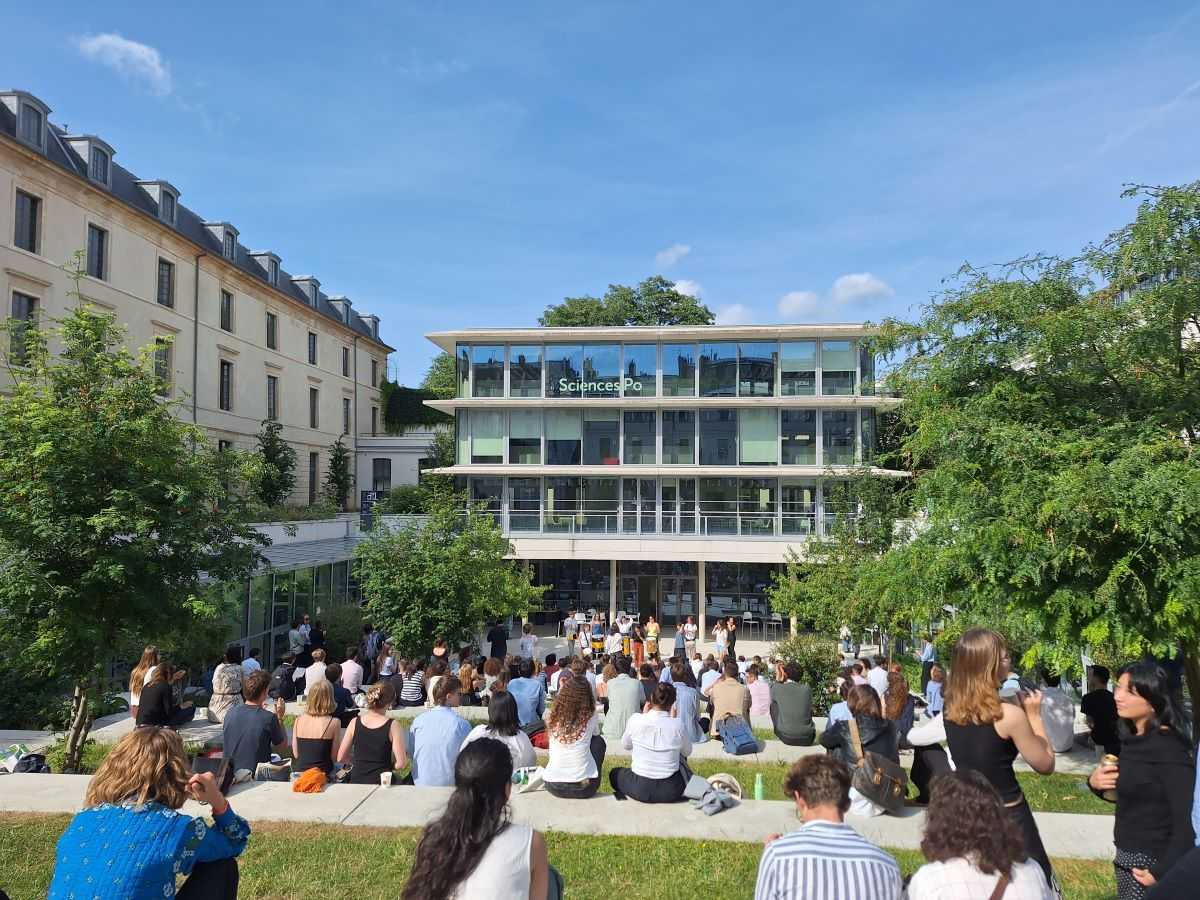
26.06.2025
A look back at the Urban Lab Day 2025
On 10 June, Sciences Po's Urban School organised its third Urban Lab Day, a significant moment in student academic life, focusing on group projects carried out throughout the year.
These projects, which are at the heart of the Urban School's teaching methods, enable students to work in groups on a real issue proposed by a public, private or voluntary organisation. They mobilise their skills to design, implement or evaluate public policies, develop urban projects or support the major transitions taking place in cities and regions.
A look back at the highlights of the day:
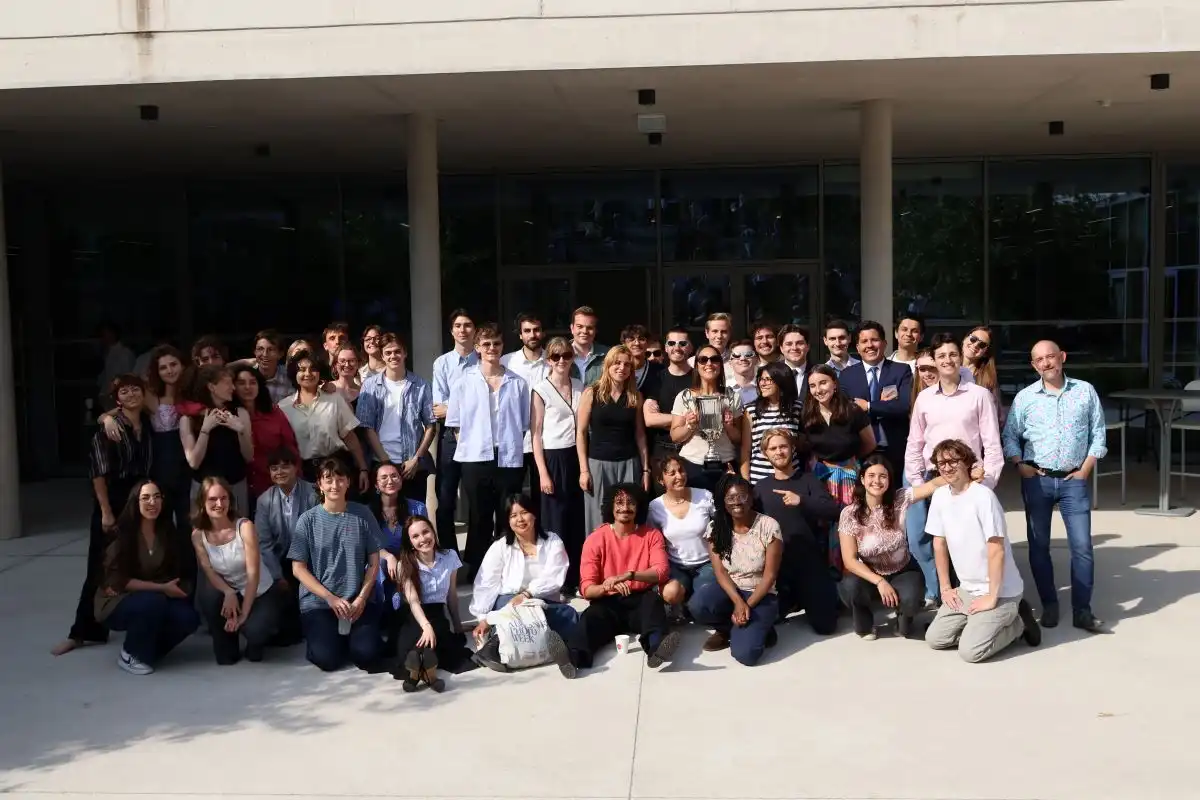
A plenary session on decarbonising mobility
The day began with a plenary session in English, devoted to the decarbonization of mobility, in conjunction with the publication of the second issue of the Lessons from the Lab, which is based on the results of the students' collective projects.
The growing awareness of the effects of air pollution has led to the introduction of strategies and initiatives at both national and European levels. However, there are still many challenges to be addressed if we are to achieve our decarbonization objectives and limit climate change, including governance, urban planning, and funding. The students proposed several concrete courses of action to meet these challenges and shared the results of their capstone projects.
The discussion brought together Eva Martineau (GETIC student), Alex Kiczales (GLM student), Rafael Alatriste Gamba (Transdev), and Fabien Clavier (AREP). Discussant: Herrie Schalekamp (University of Cape Town). Moderator: Cyriel Pelletier, academic advisor for the GETIC and GLM Masters.
A conversation on urban densification
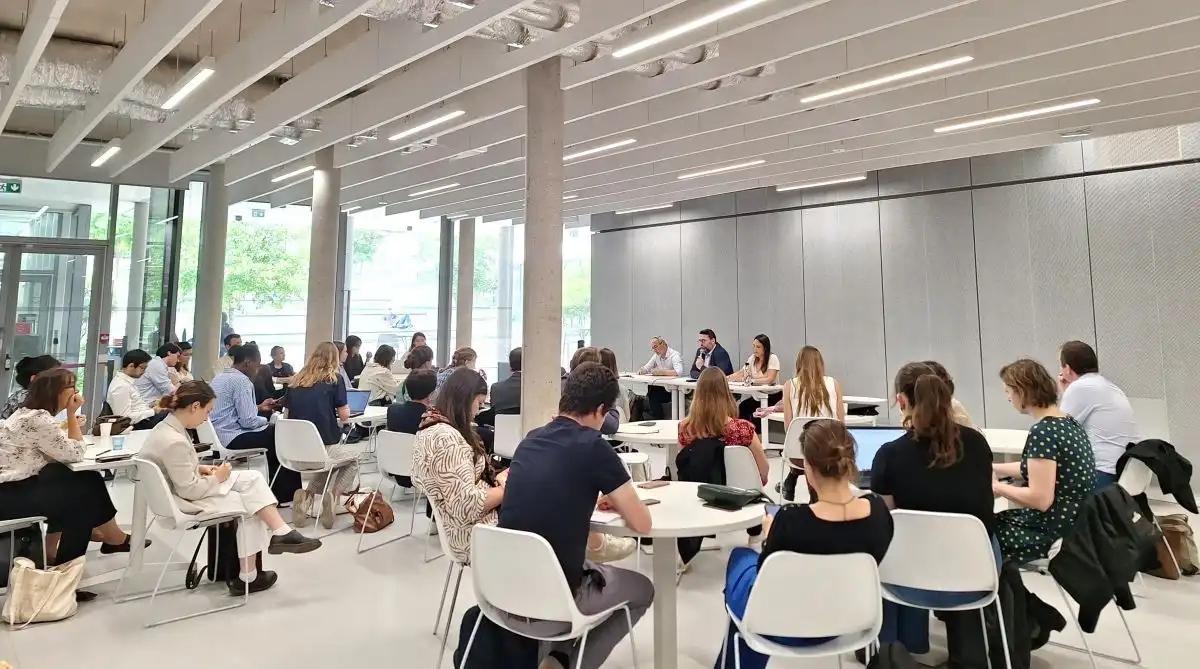
The Urban Lab Day also provided an opportunity for a cross-disciplinary dialogue between a local elected representative, Vincent Provost, Deputy Mayor of Romainville, and a researcher, Jérôme Baratier, professor affiliated to the Urban School, on a central question in contemporary debates on urban planning: how densely should cities be built?
Many urban areas are under increasing pressure to become denser for various environmental, social, and economic reasons. The "Zero Net Artificialisation" agenda has reinforced this imperative. While there are many arguments in favour of densification, several limitations also exist: adverse effects on quality of life and the environment, infrastructure and public service saturation, gentrification and social exclusion, loss of biodiversity and environmental impacts, urban congestion, and others.
This conversation provided an opportunity to explore the conceptual, operational and political issues associated with this transformation of urban areas, based on the case of the town of Romainville. It was a rich discussion, informed by the realities on the ground as much as by research findings, which opened up avenues for reflection on more sustainable urban forms.
At the heart of the day: the workshops
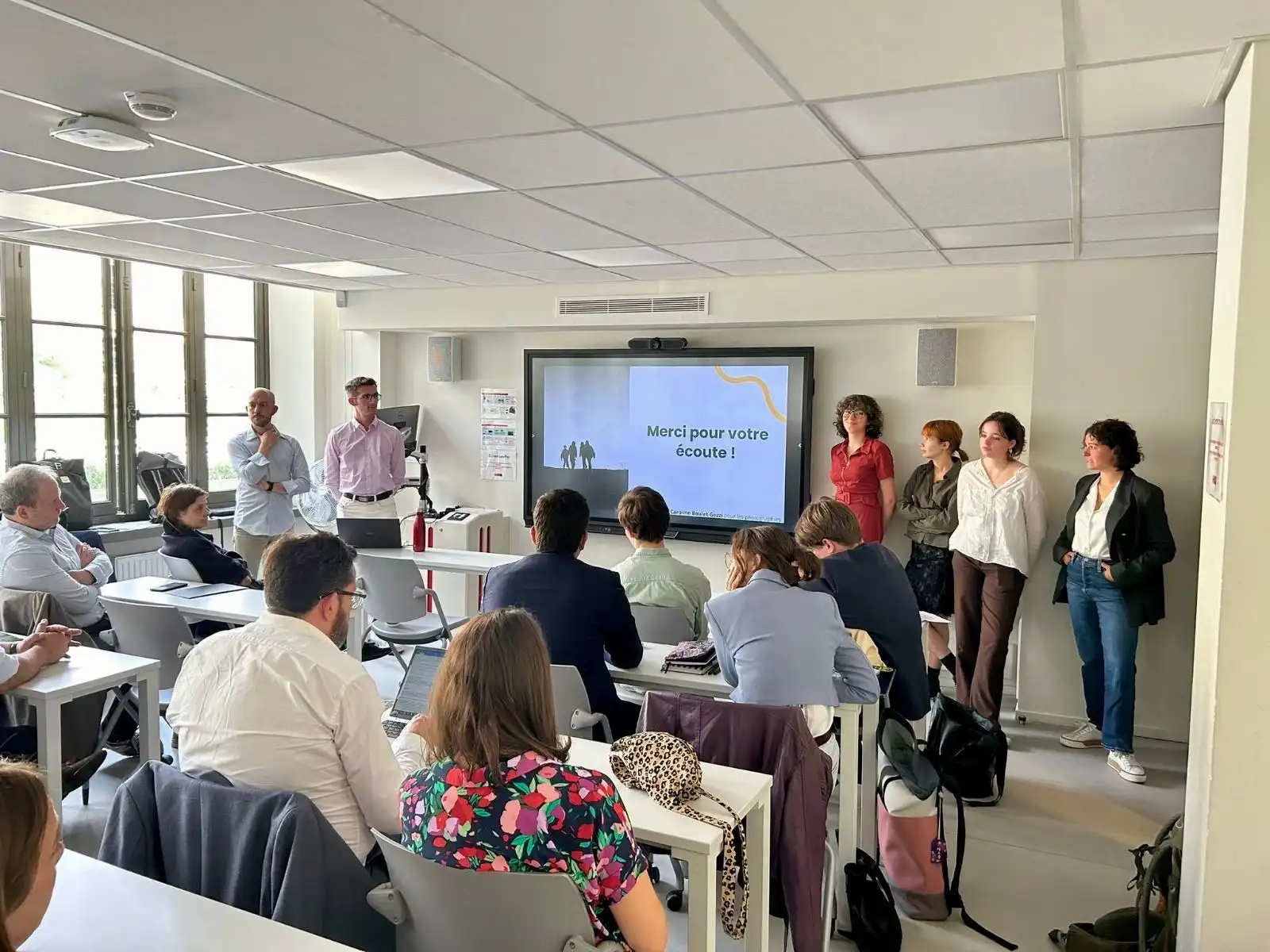
Over 40 group projects were presented during the day, in 23 themed workshops, with cross-presentations of two or three projects.
The themes addressed reflected the major urban issues of the day:
- Sustainable and post-carbon mobility
- Land, agriculture and industry
- Ecological, energy and digital transitions
- Urban densification, housing and neighbourhood renewal
- Citizen participation and social justice
- Health and regional cooperation
- Peri-urban, festive and inclusive practices
- Adapting to climate change and nature in the city
Serious game: imagining the future of a neighbourhood
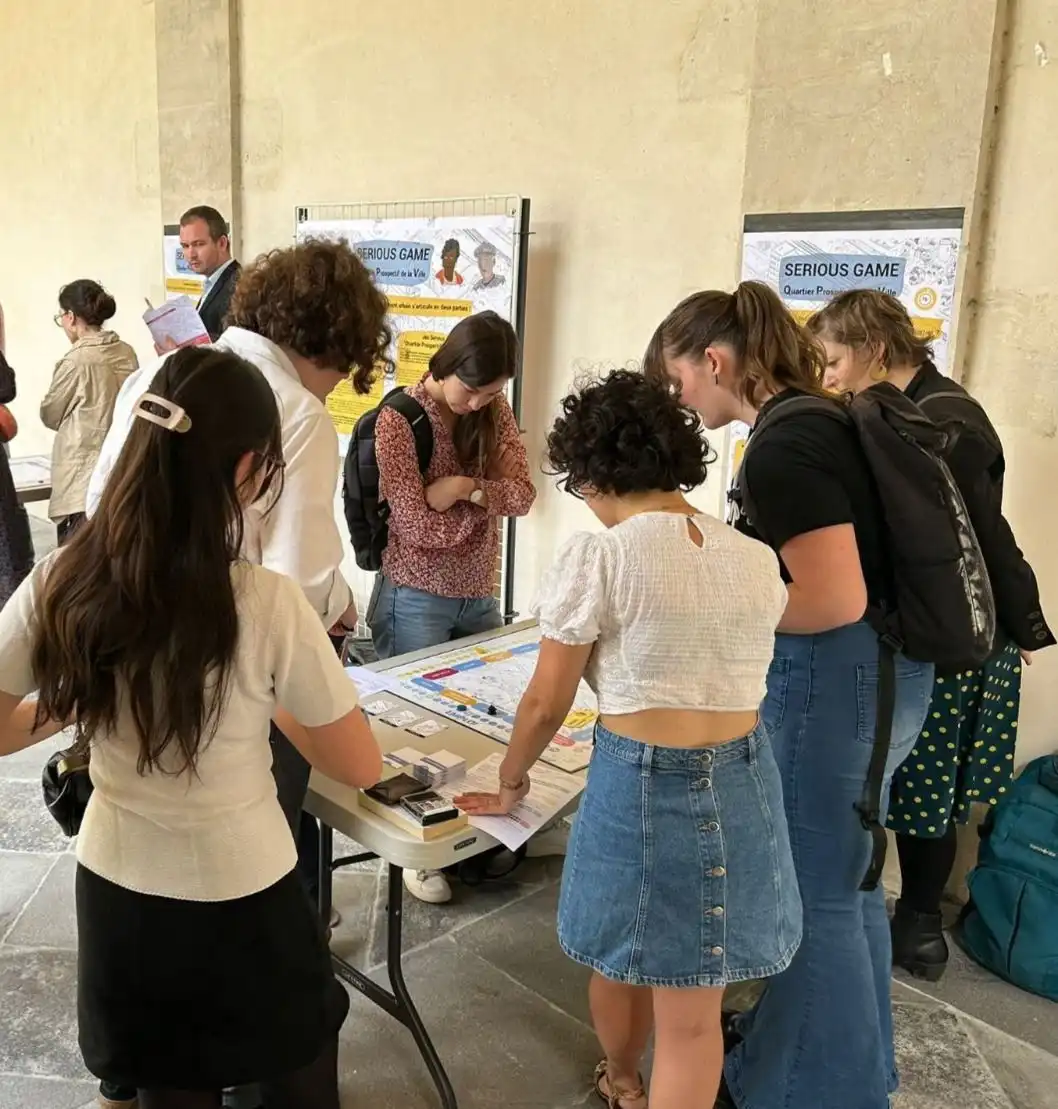
One of the highlights of the day was when a group of students from the Master in Urban Planning (Justine Griffart, Honoré Getas, Florence Foucher, Nolwenn Ahee) invited participants to play a 'serious game' developed as part of their group project with CDC Habitat. Entitled Quartier Prospectif de la Ville, this cooperative game invited participants to slip into the shoes of a social landlord, confronting societal, environmental, and economic changes in a neighbourhood up to the year 2050.
Between unforeseen events and strategic trade-offs, the players had to maintain—or even improve—the well-being of residents, assessed across four dimensions: mobility, employment, social connections, housing, and living environment—an original, interactive format for exploring the future challenges of urban renewal.
A photo exhibition on water challenges
A group of students from the Urban School's Master's in Governance of Large Metropolises - Gilad Avrahami, Ebou Ceesay, Maxwell Garcia, Maxwell Kilman and Sallyrose Savage - spent five months working on a North-South comparison of nature-based solutions to urban water management, research that led them to explore the cities of Mexico City, Cape Town and Paris. Learn more (in French)
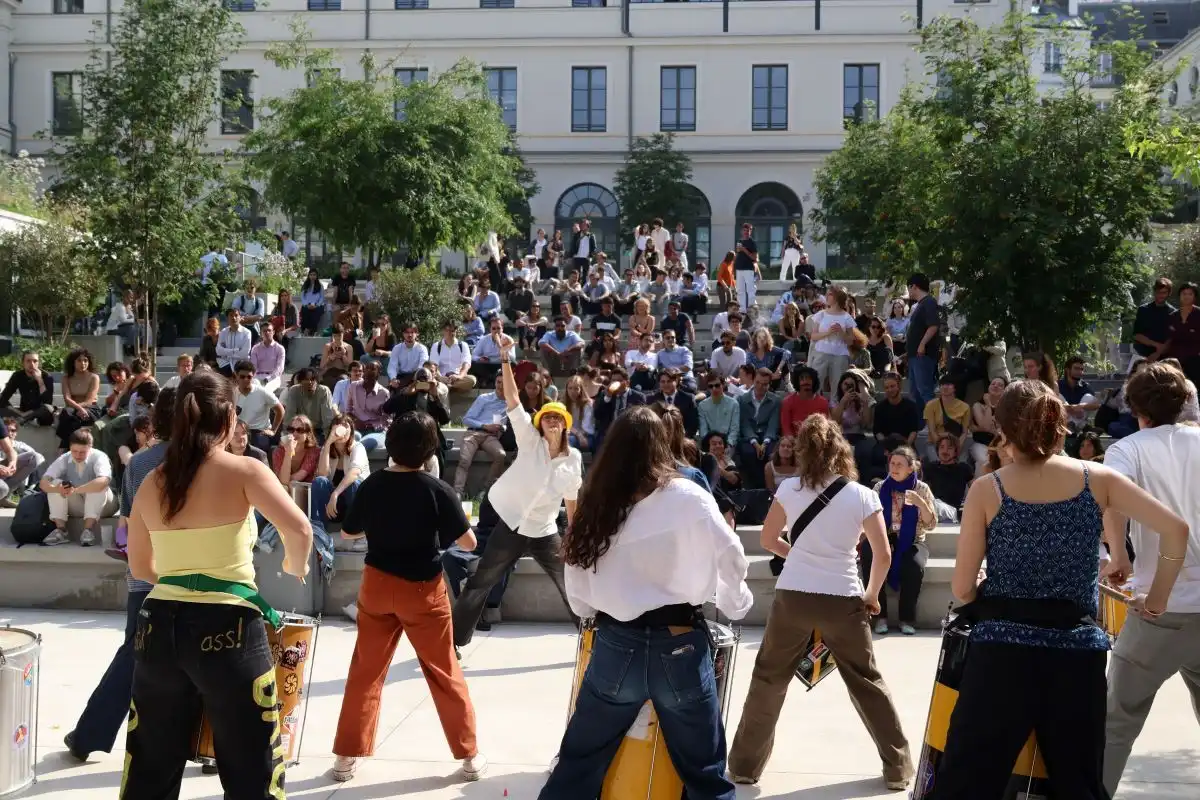
Coming soon: the project summaries
The summaries of all the different group projects will soon be available online.
Some reports are available upon request at ecole.urbaine@sciencespo.fr.
Information Sessions: Masters

Find out more about the Masters programs and the wide choice of specialisations offered by the 8 Schools of Sciences Po during our webinars dedicated to applicants.